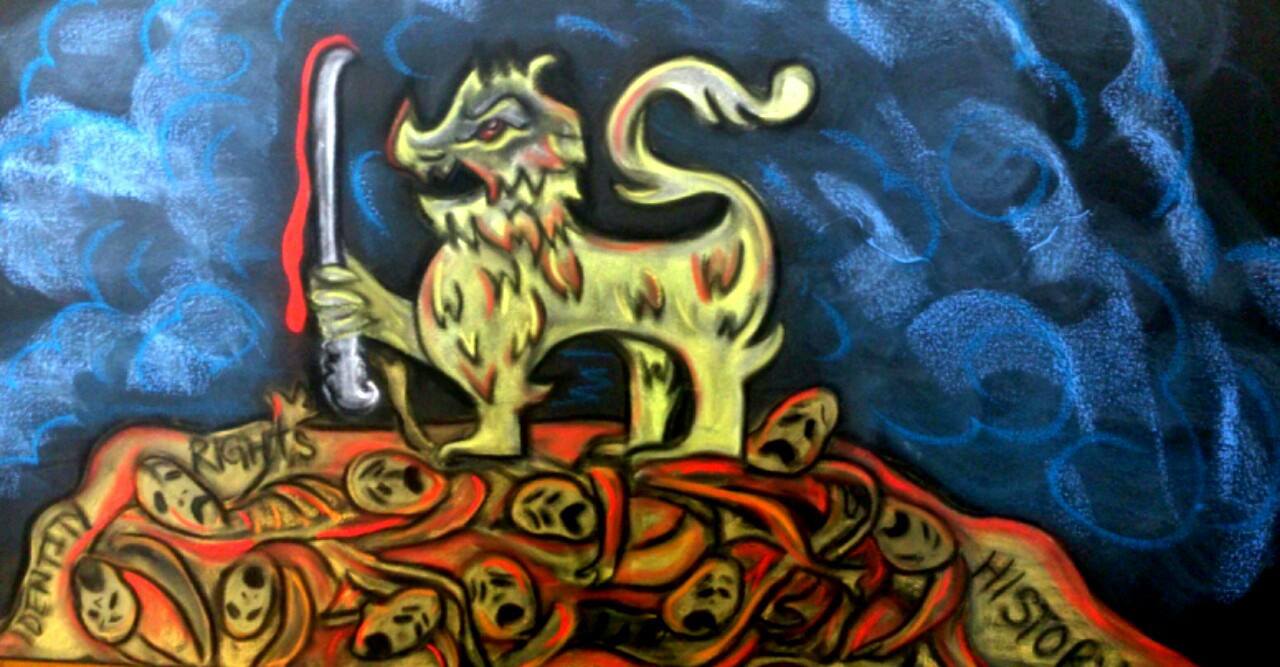Editorial: Veering backwards

At the end of the UN Human Rights Council’s (UNHRC) 39th session, there can be no more illusions as to whether Sri Lanka will deliver for the Tamils. Although the government queued up its customary showpiece to coincide with this session - this time a revamped counter terrorism bill - all evidence points to the reality that accountability, justice and a return to normalcy in the Tamil homeland, including demilitarisation, are not forthcoming. Instead in the South, both governing parties, burned by recent electoral blows, have scrambled to regain their Sinhala nationalist credentials and current signs in the North-East point to a contracting democratic space, with a worrying resurgence of military and police harassment of civil society and journalists.
The coalition government’s actions since 2015 demonstrate that it has failed to truly accept that accountability was “essential to uphold the rule of law and to build confidence in the people of all communities”, as stated in the co-sponsored UNHRC resolution 30/1, and it has no intention of fulfilling its international obligations under the resolution. While Sri Lanka is expected to measure its performance against the resolution in March 2019, the Sri Lankan president continues to reject accountability, especially for violations by the state's armed forces. He made no mention of the mass atrocities against the Tamil people committed in 2009 while speaking at the UN General Assembly this week and instead praised the ‘war heroes’ who stand accountable for them. Sirisena's flippancy about charges as heinous as the atrocities of 2009, exemplifies Sri Lankan leaders' entrenched disregard of Tamil lives. His rejection of 'foreign influences' and his claims that he would tell the UN to drop the pursuit of accountability for war crimes allegations highlights how any 'progress' made by one half of his coalition government serves only to whitewash the other. Beyond the president's rhetoric, his attempts to block courts and authorities from investigating senior military officials implicated by Sri Lanka's own Criminal Investigation Department (CID) in the abduction and disappearance of Tamil youths in 2008 epitomises precisely why accountability for Tamils will never be delivered by the Sri Lankan state.
The long-awaited Office of Missing Persons (OMP), which was used to justify the disregard of Tamil families of the disappeared who protested for over a year, has failed to inspire trust among the very families it was set up to serve. Questions remain about its independence, the inclusion of military figures and its inability to prosecute. As emphasised by local human rights defenders, a reparations office, the legislation for which has also been praised as progress, cannot be used to derail calls for an international process of accountability. In the context of the Sri Lankan state, the mere establishment of these two offices does not equate to material progress on accountability commitments.
The Tamil community has long asserted that no Sri Lankan government, regardless of ruling party, could be entrusted with delivering justice and accountability, never mind a political solution. With Sri Lanka’s mainstream parties having openly reverted to their Sinhala nationalist default, many Tamils including those who have protested day after day, have reached the end of their tether at being told to wait and hope for progress. TNA leaders who granted their unconditional support to this government must recognise that they too, and by extension the international partners that support them, have squandered the opportunity of 2015. Focusing their efforts on a new constitution at the expense of accountability has cost the TNA its leveraging power as an opposition.
In the three years since the UNHRC resolution 30/1, Tamils remain unchanged in their demands around reconciliation: accountability; justice; demilitarisation and land-release; and a meaningful political solution. The international community’s premature leap into overt engagement has failed to produce sufficient action, and more dangerously, it signals that Sri Lanka’s culture of impunity can continue unbridled, with no material consequences internationally. Sri Lanka is now once again trying to regress the narrative to the immediate aftermath of 2009, when the UN congratulated the state for the way it handled the end of the war. Without firm international action, a 'progress' that has been so far glacial at best, is under threat of veering backwards.
Illustration by Keera Ratnam
